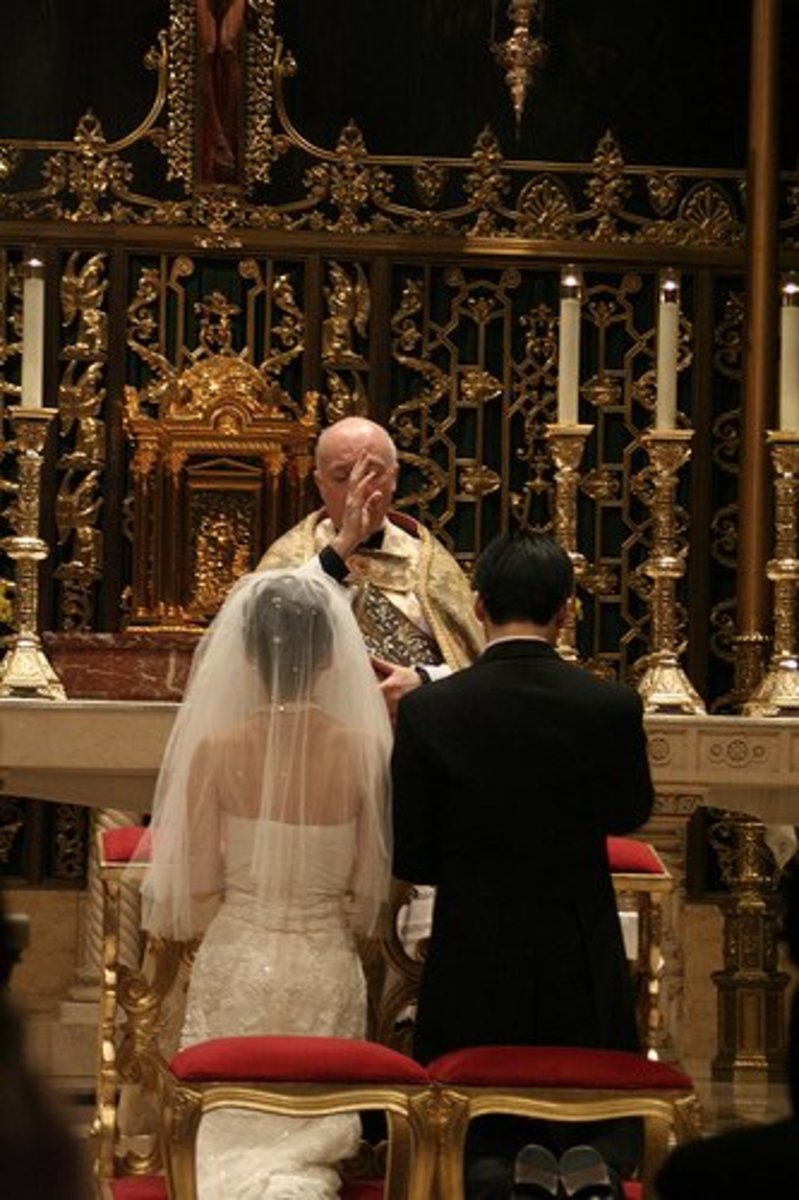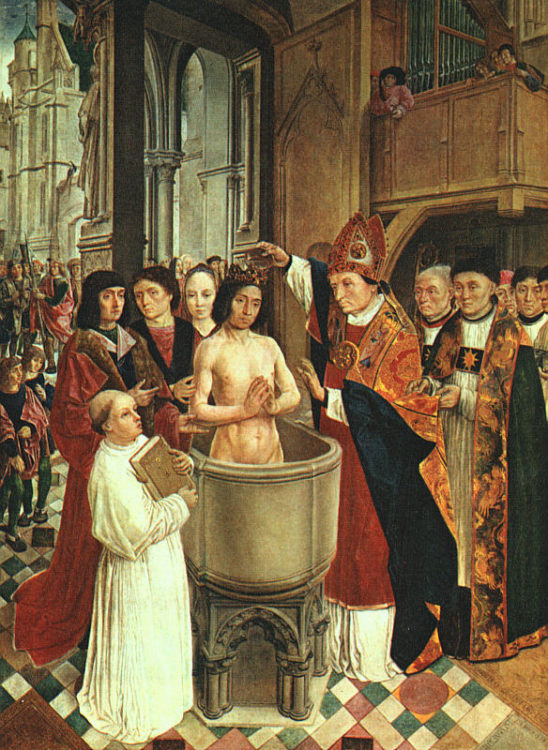June has been traditionally the month for weddings. I am posting here a sermon I preached in 2021 based on lectionary readings that came up later in the summer.
Texts: Genesis 2:18—24; Mark 10:17—27
When these readings come up in the lectionary many preachers would like to avoid them. They open a can of worms that get out and wiggle all over the place. This is an awkward topic to preach on because many if not most members of the congregation have experienced divorce, either in their own lives or in the lives of loved ones. But just because these are intensely personal issues, they should not be avoided. We need to come to terms with what the scriptures say about the difficult matters of marriage and divorce.
The issue of divorce is not new in human history. The matter of marriage and divorce came up in Jesus’ ministry because the Pharisees brought it up to test Jesus. They pointed out that Moses allowed a man to divorce his wife – send her away if he was dissatisfied. Marriage was like a business contract and if the man found fault with the product he could send her back to her family. The Pharisees wanted to know what Jesus thought about this. I think we Christians would also like to know what Jesus thought about divorce.
Jesus didn’t even deal with what Moses said. He answered that these laws were legislated because of “your hardness of heart.” But this is not what God intended “in the beginning.” Divorce is a result of the fall into sin, a situation of broken relationships. But having laws that provided for divorce made it easy for men to avoid living into the relationship that God intended. Jesus cites God’s intention that marriage be inviolable. Two have been joined together and become one flesh. Jesus’ comment on this is that “What God has joined together, let no one separate.” The sexual union of one flesh cannot be undone.
Since Jesus refers to the divine institution of marriage in Genesis, we should look at that reading ion Genesis 2. There are some things that should be noted. First of all, God concluded that the human creature, Adam, should not be alone. So he brought all the animals before Adam to see what he would name them (man’s first science assignment) and to see if one of them would be a helper to the man in managing the creation. None was suitable. So in the story God caused the man to fall asleep and from the man the woman was created from Adam’s rib. When Adam woke up and saw her, he said, “This is bone of my bone and flesh of my flesh.” She was a creature similar to the man as a human being, but complimentary. She is not a helper for the man. That search was abandoned. This is a partner for the man.

Some women object to being regarded as “Adam’s fractured rib.” I have no idea why in this second creation story the male and female humans were not created at the same time as they were in the first creation story in Genesis 1 — and as presumably the other animals were. Perhaps it was to emphasize that the man and the woman were of one origin. But we should note, second, that the man is to leave his parental home and cleave to his wife. Israel was to have a matrilineal arrangement as far as offspring are concerned. You’re Jewish if your mother is Jewish, not your father. So perhaps this is a way for the ancient text to strike a note of equality between man and woman.
Returning to the Gospel narrative, when Jesus went into the house his disciples pressed him about his seeming rejection of divorce. Jesus’ response is that re-marriage is adultery against one’s former spouse. Did you not hear? “The two become one flesh.” That cannot be undone.
Our bodies are not self-contained. We are not autonomous. We received our genes from our parents and we pass them on to our children. We receive many viruses from other bodies that we can pass on. We learned about our biological connection with one another in the AIDS epidemic. Without protection we carry the body fluids of every person we have had sex with. There are several sexually transmitted diseases.
Human beings are biologically connected – to our parents and to our sexual partners. The safest sex, if you’re going to indulge in the intimacy of bodily fluid bonding, is between two persons who have never had sex with anyone else.

Many people today think that absolute monogamy is humanly impossible. In some countries, especially in the Islamic world, polygamy is still practiced – as it was by the Old Testament patriarchs and kings of Israel. In the Western world today we are seeing experiments with polyamory – men and women living together in one household and sharing sexual partners. Many who divorce practice serial monogamy by marrying more than once. Many practice adultery within marriage by having extra-marital affairs. “Hardness of heart” indeed!
The reality is that marriage, like every human cultural institution, is fallen. No marriage is perfect. We idolize those couples who manage to remain together and remain reasonably happy fifty years or more.
I want to respond to our marital situation in two ways. First, it is possible to love more than one person. Indeed, I should hope so! Lovers do not have sex with anyone else, not because they can’t love anyone else, but because dealing with our one spouse is the way we learn to truly love another person – in sickness and in health, for better and for worse, as we say in the marriage vows. As married couples we together love others – certainly our children and our other relatives (including our in-laws), but also the people who cross our path in our communities and churches. We are given many people to love! One might say that learning to love our spouse throughout all the up and downs of married life is practice for loving others.

Yes, we fail in love many times. But as followers of Jesus we are taught to confess our failures and receive forgiveness of sins. In our fallen state we live in and by God’s grace, not by legal casuistries – including the casuistries of church law. Church authorities can be just like the Pharisees in our legalisms. The union of two becoming one flesh cannot be annulled. The only annulment that is possible is when a marriage has not been sexually consummated, when there has been no conjugal union. Fictions about this should be avoided. The issue is whether a difficult marriage can be dissolved by divorce. Some churches have said “no,” although the Protestant reformers made provision for divorce under some circumstances — such as infidelity by one partner, deception about past relationships, abandonment, and infertility. I would not include infertility, because there are other options for having children, but I would include spouse abuse.
Moreover, those who have gone through the agony of dissolving a marriage should not be barred from communion; they need the grace of God. After confession and repentance, which is incumbent on all of us before coming to the Lord’s table, they should receive the gifts of Communion with Christ and his church through receiving the bread and cup. The sacrament is for sinners.
A line in our old Lutheran marriage rite said, “…although by reason of sin, many a cross hath been laid thereon, nevertheless our gracious Father in heaven doth not forsake his children in an estate so holy and acceptable to him, but is ever present with his abundant blessing.”
God does not abandon us any more than he abandoned his only-begotten Son on his cross of suffering and death. In God’s love and grace, there is always a third day of new beginnings. Many divorced persons have found a new beginning with a new partner. But that can’t be guaranteed. For every claim that a couple had a friendly divorce, there are messy divorces that also impact family and friends. Marriage is a social institution, not just a personal arrangement. So every obstacle to remaining in the marital union should be explored to see if it can be overcome before the fateful step of divorce is taken. Seek the counsel of the pastor and recommendations for couples therapy. Ask for the prayers of the church community even if the reason is not publicly stated. Know that what Gid created in the first place, and blessed at the wedding, God wants to keep together. God’s grace remains.
Amen.
Pastor Senn






